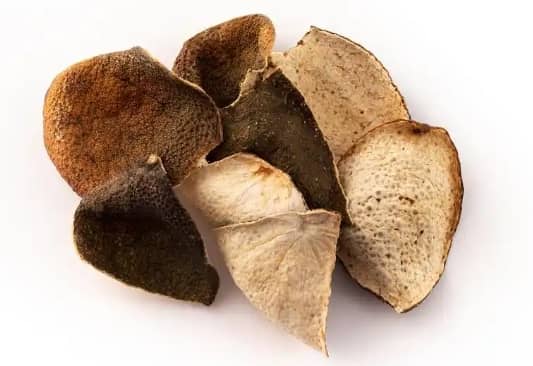Dried tangerine peel, a precious traditional Chinese medicine, has long been praised as “A century-old tangerine peel is better than gold.” In the “Compendium of Materia Medica,” it is said, “A century-old tangerine peel is worth more than a thousand years of ginseng.” This shows just how valuable dried tangerine peel is in traditional medicine. Today, let’s take a look at the medicinal properties of this incredible herb.

Table of Contents
- Three Major Effects of Dried Tangerine Peel
- Properties and Functions of Dried Tangerine Peel
- Indications and Usage Notes
- The Difference Between Tangerine Peel and Orange Peel
1. Three Major Effects of Dried Tangerine Peel
The phrase “A century-old tangerine peel is worth more than a thousand years of ginseng” highlights the significant role of tangerine peel in Chinese medicine. According to the “Compendium of Materia Medica,” tangerine peel has three major functions:
- Expelling Cold: Helps expel cold from the chest, providing warmth, like the gentle touch of spring sun.
- Relieving Qi Stagnation: Works like clearing up traffic congestion in the body, making the circulation of Qi smoother.
- Strengthening the Spleen and Stomach: The spleen and stomach are vital for digestion, and tangerine peel helps strengthen them, ensuring better digestive health.
These three benefits make tangerine peel an indispensable herb in Chinese medicine.
2. Properties and Functions of Dried Tangerine Peel
Dried tangerine peel, also known as tangerine skin or “hua hong,” is warm in nature, with a spicy and bitter taste. It is believed to benefit the spleen and lungs. Here are its main properties:
- Spicy and aromatic: Helps disperse dampness from the body.
- Bitter and dries dampness: Improves the spleen and stomach functions.
- Regulates Lung Qi: Clears lung congestion caused by phlegm.
- Regulates Qi Stagnation in the Spleen and Stomach: Helps alleviate digestive issues caused by Qi stagnation.
These properties make tangerine peel effective in treating digestive problems, phlegm, and cough.
3. Indications and Usage Notes
Dried tangerine peel is commonly used to treat:
- Spleen and stomach Qi stagnation: Symptoms include bloating, loss of appetite, indigestion, and nausea.
- Phlegm and cough: Suitable for symptoms like excessive phlegm and white tongue coating.
However, tangerine peel should be used with caution. It is warming and drying, so it is not recommended for those with Qi or Yin deficiency, especially those with dry cough or heat conditions. It should also be avoided by those with a history of bleeding.
4. The Difference Between Tangerine Peel and Orange Peel
A common question is whether the tangerine peel we eat is the same as dried tangerine peel used in traditional medicine. In fact, dried tangerine peel is sun-dried or aged, and its medicinal properties are much stronger than those of fresh orange peel.
✅ Conclusion
Dried tangerine peel, with its outstanding medicinal value, holds an important place in traditional Chinese medicine. By using it correctly, tangerine peel can help improve digestion, clear phlegm, and regulate lung Qi. However, care must be taken to avoid misuse, as it may not be suitable for everyone.